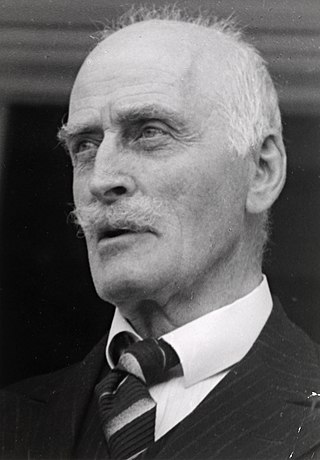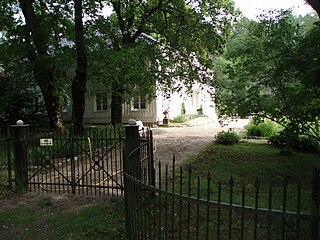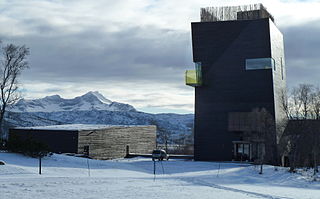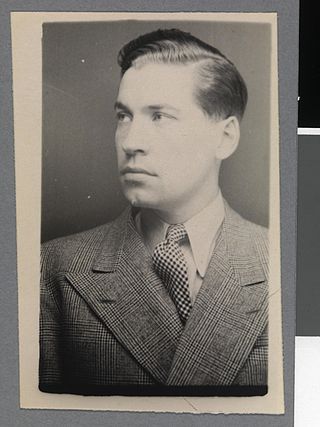Related Research Articles

Knut Hamsun was a Norwegian writer who was awarded the Nobel Prize in Literature in 1920. Hamsun's work spans more than 70 years and shows variation with regard to consciousness, subject, perspective and environment. He published more than 23 novels, a collection of poetry, some short stories and plays, a travelogue, works of non-fiction and some essays.

Hamarøy is a municipality in Nordland county, Norway. It is part of the traditional district of Salten. The administrative centre of the municipality is the village of Oppeid. Other villages include Drag, Innhavet, Karlsøy, Korsnes, Presteid, Skutvika, Tømmerneset, Tranøy, and Ulvsvåg.

Mary Chavelita Dunne Bright, better known by her pen name George Egerton, was a writer of short stories, novels, plays and translations, noted for her psychological probing, innovative narrative techniques, and outspokenness about women's need for freedom, including sexual freedom. Egerton is widely considered to be one of the most important writers in the late nineteenth century New Woman movement, and a key exponent of early modernism in English-language literature. Born in Melbourne, Colony of Victoria, she spent her childhood in Ireland, where she settled for a time, and considered herself to be "intensely Irish".

Hunger is a novel by the Norwegian author Knut Hamsun published in 1890 by P.G. Philipsens Forlag. The novel has been hailed as the literary opening of the 20th century and an outstanding example of modern, psychology-driven literature. Hunger portrays the irrationality of the human mind in an intriguing and sometimes humorous manner.

Mysteries is the second novel by Norwegian author Knut Hamsun.
Hunger is a prolonged condition in which insufficient amounts of food are available.

On Overgrown Paths is the English title of the final novel by Norwegian author and nobel laureate Knut Hamsun. Hamsun's attempt to prove his soundness of mind after his sanity was called into question. Written at the age of 90, as his last literary work, the short novel is part a fiction pamphlet, part diary, part old man's apologia and part protest at the court ruling in his 1948 trial, that determined he had "permanently impaired mental abilities".

Marie Hamsun was a Norwegian actress and writer.

Hunger is a 1966 black-and-white drama film directed by Denmark's Henning Carlsen, starring Swedish actor Per Oscarsson, and based upon the novel Hunger by Norwegian Nobel Prize-winning author Knut Hamsun. Filmed on location in Oslo, it was the first film produced as a cooperative effort among the three Scandinavian countries.
Henning Carlsen was a Danish film director, screenwriter, and producer most noted for his documentaries and his contributions to the style of cinéma vérité. Carlsen's 1966 social-realistic drama Hunger (Sult) was nominated for the Palme d'Or and won the Bodil Award for Best Danish Film. Carlsen also won the Bodil Award the following year for the comedy People Meet and Sweet Music Fills the Heart. Acting as his own producer since 1960, Carlsen has directed more than 25 films, 19 for which he wrote the screenplay. In 2006, he received the Golden Swan Lifetime Achievement Award at the Copenhagen International Film Festival.

Osvald Helmuth was a Danish stage and film actor and revue singer.

Hamsun is a 1996 internationally co-produced drama film directed by Jan Troell, about the later life of the Norwegian author Knut Hamsun, who, together with his wife Marie Hamsun, went from being a national hero to a traitor after supporting Nazi Germany during their occupation of Norway during World War II.
Events in the year 1890 in Norway.

Nørholm, also called Nørholmen, is a manor house and agricultural property on 185 hectares in the municipality of Grimstad in Agder county, Norway. The estate is known mostly because of one of its previous owners was Nobel Prize-winning author Knut Hamsun.
Pan is a 1995 Danish/Norwegian/German film directed by the Danish director Henning Carlsen. It is based on Knut Hamsun's 1894 novel of the same name, and also incorporates the short story "Paper on Glahn's Death", which Hamsun had written and published earlier, but which was later appended to editions of the novel. It is the fourth and most recent film adaptation of the novel—the novel was previously adapted into motion pictures in 1922, 1937, and 1962.

The Knut Hamsun Centre is a museum and educational centre in Hamarøy in Northern Norway dedicated to the life and work of the writer Knut Hamsun.

Tore Hamsun was a Norwegian painter, writer, and publisher born in Hamarøy. He was the son of the Nobel Prize winning novelist Knut Hamsun and actress Marie Hamsun.
Sverre Lyngstad was a scholar and translator of Norwegian literature. He is renowned for his significant contribution to making Norwegian literature accessible to an English-speaking audience, for which he was awarded the St. Olav's Medal in 1987 and the Royal Norwegian Order of Merit, Knight's Cross, First Class in 2004. He is best known for his translations of and commentaries on the works of Knut Hamsun, which are widely credited for helping to popularise Hamsun's work in the US and UK.
Martin Ernstsen is a Norwegian comics artist.

The 1920 Nobel Prize in Literature was awarded to the Norwegian author Knut Hamsun (1859–1952) "for his monumental work, Growth of the Soil." He was the second Norwegian Nobel laureate in literature after Bjørnstjerne Bjørnson won in 1903.
References
- ↑ "Knut Hamsun and Martin Ernstsen: Hunger". Books from Norway. Retrieved 1 December 2023.
- ↑ Flognfeldt Brubaker, Ingrid (20 March 2020). "Unik tegneseriedapsjon". Vinduet (in Norwegian). Retrieved 1 December 2023.
- ↑ Sørheim, Erle Marie (10 June 2019). "Kan bli en ny klassiker" . Dagbladet (in Norwegian). Retrieved 1 December 2023.
- ↑ Sørheim, Erle Marie (16 October 2019). "Die wichtigsten Comics aus Norwegen: Nordische Botschafter". Der Tagesspiegel (in German). Retrieved 1 December 2023.
- ↑ Fossberg, Harald (10 August 2019). "Martin Ernstsen måtte jakte på mat i søppelcontainere mens han tegnet Hamsuns «Sult»". Aftenposten (in Norwegian). Retrieved 1 December 2023.
- ↑ Göttler, Fritz (14 October 2019). "Von der Stadt gezeichnet" . Süddeutsche Zeitung (in German). Retrieved 1 December 2023.
- ↑ Reiterer, Martin (14 October 2019). "Knut Hamsuns "Hunger" als Graphic Novel". Der Standard (in German). Retrieved 1 December 2023.